In early 1968 Focal Point were one of the hottest prospects in British rock. They were the first act signed to Apple Publishing, named by Brian Epstein and praised by the Beatles. However as Apple turned sour so did the group’s fortunes. Jason Barnard uncovers the real story behind the band that is one of the big “What Ifs” of the era.
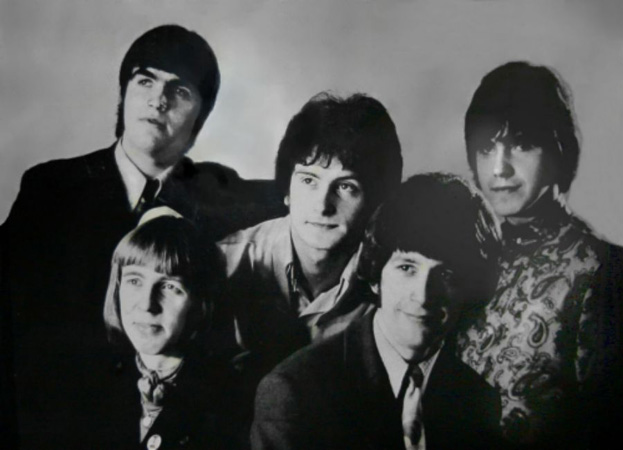
Focal Point are known as a small footnote in the saga of the Beatles’ Apple Corps overshadowed by artists signed later such as Grapefruit, Badfinger and Mary Hopkin. Their sole single “Love You Forever/Sycamore Sid” was all that was heard until much of their material was finally released in 2003’s “94 Baker Street” compilation and their own well received 2005 cd “First Bit of the Apple” which is packed with pop-psych gems. Apple expert Stefan Granados called them “one of the great lost English pop groups of the ‘60s”. So what really happened?
Like their Liverpool peers, the band was shaped by the post-war forces that inspired the wave of Merseybeat groups. Rationing was still in place until the mid-1950s and as with many other British cities Liverpool still suffered from the ravages of the Second World War. Despite this austerity, Liverpool was a major port that brought in a melting pot of music. Focal Point’s bassist Dave Slater, recalled: “I had an uncle who was in the Korean War and he brought back American records. He brought back the first Elvis Presley 78s, when I was eight. I remember listening to Hound Dog. I loved it. You’d have the sailors coming in with the records. So you’d rely on word of mouth: “Bo Diddley, Little Walter: Who are these people?” It was like they were from another planet really.” Country music was also extremely popular in Merseyside, Dave: “George Harrison’s early playing is not influenced by the blues. It’s influenced by Scotty Moore, Elvis’ guitarist, a clean picking style. The Beatles early material featured Carl Perkins’ “Matchbox” and “Honey Don’t”.”
From the late-Fifties to mid-Sixties, Whitechapel in central Liverpool was one of the main hubs of the Liverpool music scene. In the Kardomah Coffee Bar bands would meet together, network and generally pass the time of day talking music. Dave Slater explains “All you would buy was one coffee that would last all day. Just opposite was NEMS, the shop that Brian Epstein owned. When you finished in the KD you would wander over. He managed it at the time and you would sometimes see him there. Upstairs was electrical goods and downstairs in the basement you’d have music. You go into the booths and listen to the latest records.” Next door was Hessy’s music shop, Dave: “That’s where most of the Mersey musicians got into debt to buy their guitars! I bought my first Fender Precision Bass here back in 63 on HP over 2 years. We were all in debt!”
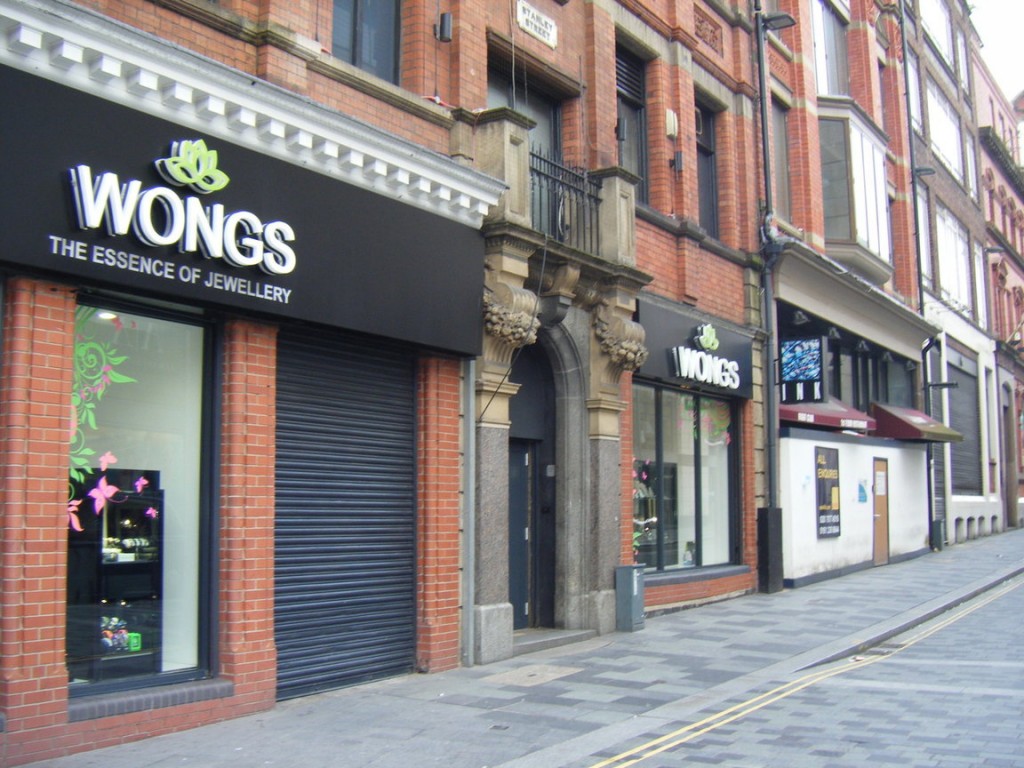
By the mid-sixties the Merseybeat scene was losing momentum commercially but there was still a thriving live scene with new groups such as The Hideaways and The Masterminds. The Masterminds included Joey Molland, later of Badfinger. Dave: “My first job was working in a shipping office and I’d go to the afternoon sessions and I would be gone 2 hours for lunch. I used to watch Joey and was impressed with his guitar work.”
Focal Point would be ultimately formed from two bands from this period. Paul Tennant, Dave Rhodes and Ted Hesketh started their life in The Maracas, while Dave Slater and Tim Wells played in The Top, both to modest local success. Dave: “We played the all-nighters in the Cavern when I was 16/17. What I remember about the original one was that it wasn’t licensed. I can remember going down the steps to the cloakroom and this smell of Coca-Cola and hot dogs.”
In May 1967 Paul Tennant and Dave Rhodes of The Maracas decided to take a holiday in Torquay but stop off in London on route. After reading about Paul McCartney’s house they decided to track it down, which once in the Lords area, wasn’t difficult due to the volume of girls waiting outside! Once there they saw Paul’s gates open and a Mini shoot out with a large sheepdog in the back. They followed the car to Hyde Park which pulled up to drop off Jane Asher and Paul McCartney who were there to walk the dog.
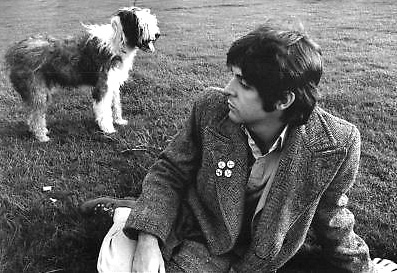
Paul Tennant recalled in a previous piece for the Marmalade Skies website that they decided to “Follow him and tell him about our songs. We abandoned the car and went off in hot pursuit. We caught Paul up we shouted to him and he turned around. We then told him our story, we were writing songs and didn’t know what to do with them, could he help? Could he help? There is an understatement. He could have done anything at that time, The Beatles were like gods. After about five minutes of talking to each other he said to us “I could get you a recording contract just like that” and flicked his fingers. “But why should I?” It was then that he proved to be human by planting a finger up his nostril. Dave laughed and he laughed. Dave then said to him in answer to his question “Because we are good, our songs are good.” It was just like that, Paul then wrote down on a piece of paper a phone number and gave it to us. “Phone this guy and tell him I sent you,” said Paul and he was then gone, carrying on walking the dog. The phone number was the number for Terry Doran. To cut a long story short, we then drove to Torquay and spent a week in the sun, met some girls, had a ball but did not have the bottle to make the phone call.”
John Lennon encouraged Doran to go into music publishing which saw him being made the newly appointed Managing Director of Apple Publishing, pre-dating the formation of the Apple record label. Another Liverpudlian, his only other experience of business was managing a car dealership with Brian Epstein, Doran was immortalised in “She’s Leaving Home” as the “Man from the motor trade”. After Paul Tennant did pluck up the courage to call Terry, he asked the duo to come down to the London to play him their songs. Paul and Dave played four numbers including “Girl On the Corner” and “Miss Sinclair” went into a studio the same day to record demos. The tracks got a great reception, particularly from John Lennon and Brian Epstein, so they were offered a five year publishing deal. Brian Epstein was keen for them to form a band as a vehicle for their material and told them he wanted them to be called “Focal Point”.
Paul and Dave went back to Liverpool’s 149 Club as they knew who they wanted. Dave Slater explains “We were playing there one night with my band, The Top. Tim Wells and I were approached by these two guys in the interval. They looked the part. It was 1967.One of them had a kaftkan on! We thought that this was really weird. We’d heard of flower power stuff and all that but it hadn’t reached Liverpool at the time. We were very much a Motown type band. They introduced themselves. They said they had “a song writing deal with Apple. Brian Epstein wants us to form a band and call it Focal Point. We’d like you to play with us.” And so I thought about it for about two seconds! I said “Yes, ok we’ll do that.” Ted Hesketh joined us later from The Maracas, fantastic drummer. Dave was rhythm guitar, Paul was lead, me on bass and Tim on keyboards.”
The band went back down to London to record more demos and were told by Terry Doran to meet him at John Lennon’s house at Weybridge, Surrey. They were to stay there for the night as John was out of the country. However when they got there Terry was no where to be seen and the house was in total darkness. Dave Slater remembers “Our drummer managed to get in the house within seconds! When we got in there it was like an Aladdin’s Cave. There was film of the Beatles, clips that we didn’t know then would form part of the “Magical Mystery Tour” film. Mick Jagger phoned up looking for John. Terry eventually arrived there later that evening and apologised profusely. We spent the night there listening to all this music. “Sgt Pepper” was out then and we were listening to different versions with different track formations. My first impressions of Terry was this guy with a Bob Dylan hair cut and a lime green suit. Very bouncy, bubbly.”
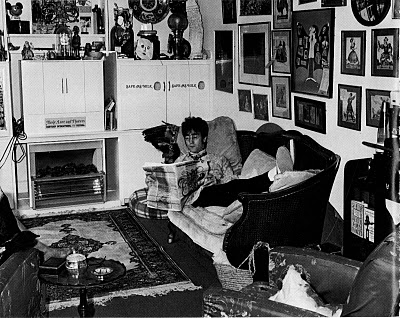
The band were all signed to Apple Publishing, put on a retainer for expenses and provided a house in Whistler Street, North London. Apple’s home was in Baker Street, the boutique being in the basement, the following levels being offices and the top floor being a small four track recording studio for acetates. Dave Slater recollects “All I remember of Apple was white leather everywhere. Plush carpets, a very luxurious place. It appeared that money was no obstacle. Suddenly everything was there. It must have cost a fortune. You didn’t have to worry about money, it just appeared. You thought it would last forever but naturally it didn’t.” Tim saw George Harrison’s newly installed video recorder: “The TV and video recorder were covered in purple velvet.” They also came across some of the other activities in the embryonic Apple, Tim: “Magic Alex had a room set aside. He was trying to build a time machine! You thought he must be something special.” Dave: “It did go with what they were planning. Let’s think outside the box. Let’s try anything.”
Lionel Morton, best know for being the lead singer of the Four Pennies (co-writing their 1964 no. 1 hit “Juliet”), was brought in as the group’s producer: “We’d spend from midday to the early hours of the morning, at the top of the place at Baker Street, putting down the material that Dave and Paul had written. At that point, Apple had only four songs from them acoustic versions such as “Tales from the GPO Files”, “Girl on the Corner” and “Miss Sinclair”. So we recorded versions as a band. That was the life. People would just walk in and out; the Beatles of course, Mick Jagger. I remember someone saying one evening, “Lennon’s outside.” So we went to the window and looked down into the street below. It was a psychedelic Mini. Yoko and John had just turned up. Paul shouted in a thick Liverpudlian accent “Hey John!” putting it on a bit. Also in the building was Robert Stigwood’s organisation. They had a company called Dratleaf and the Bee Gees and Cream were on it. We’d finish late and go out to one of the local clubs where all the stars hung out. It was a great scene.” Tim: “When we went out to the clubs we didn’t pay for anything. Expensive wines, it all went on the Apple tab.”
Paul Tennant and Dave Rhodes had free use of the Beatles equipment. Dave Slater remembers: “Terry Doran said, “Yes, if they’re not using it. Use it.” Paul tells that story about swapping over the strings, from a left hander to a right hander, and suddenly McCartney wants it back again. It was an Epiphone. They were frantically changing the strings back like it had never been missing!”
Terry Doran then took the band’s publishing demos round record companies to get the best offer: “Terry said there are four major companies wanting to sign you up – Decca, MGM, Pye and Liberty. Decca’s subsidiary was Deram which at the time was a fairly new label. Out of them all it was probably the best deal of the lot. So Apple left it to us to decide and so we signed to Decca. We recorded for two days at Decca’s No.2 studios which the Rolling Stones were using regularly then. The tracks were “Sycamore Sid”, “Love You Forever”, “Girl On The Corner” and “Never Never”.”
Despite Deram being set up as a more progressive side of Decca, they were still subjected to the label’s notorious frugality and unwillingness to take risks. When listening to Focal Point’s studio recordings the Decca Committee decided to go with the ballad “Love You Forever” as the single. Dave: “It wasn’t what we wanted. Decca could have put out McCartney’s favourite “Never Never” as a single. But they decided they didn’t want to spend any more money.” Tim echoes this “They were old men in suits and were risk averse.”
Before the single came out the band had to do a special show for the press in the West End. They were taken to the Apple boutique to choose the clothes they wanted and sent them to Vox for new instruments. Dave Slater recalls that when they were at the boutique Ringo was there: “His wife Maureen was chatting to me. I thought “We’re in the big time here.” We then did the show and had publicity shots taken. I remember going into the reception area and there was life size pictures of us the wall. You could be forgiven for thinking “We don’t need to do anything else. We’re here. The rest will take care of itself”. Wrong! (Laughs) But when you’re 17 to 18 you don’t think about these things. We didn’t. We thought we’ll sit back now and let it all happen and, of course, that was the biggest mistake that we could have made.”
Terry Doran passed management increasingly to Lionel Morton and did not show up at the single’s launch. The fact that his attention was turning to new Apple publishing protégé George Alexander and his band Grapefruit, who Doran took to managing personally, must have been a key factor. Dave explains “It was becoming a bit fractious between the Beatles then. They were doing their own projects. Certainly with Grapefruit coming on the scene, John Lennon’s interest went to them and Terry Doran’s enthusiasm waned.” The group also helped out on the recording of Apple signing Jackie Lomax’s “Is this what you want?” album: “We worked with Jackie. He’s a Liverpool guy. We did a session with him which was produced by Glyn Johns. I thought he was going to take off big time. I don’t know if they promoted him as well as they could have.”
The group continued to record for Apple but didn’t play live. Dave: “If Epstein was alive it may have been different – I don’t know. That probably was an early sign. Had he survived he would have pushed us more. Instead, Apple started to loose interest and we needed someone as an Agency to get us the gigs. And to be quite honest with you we were having a good time anyway. The record was out. We were at Apple everyday, bumping into people. We met them all. It was a good time. We didn’t feel that we needed to do anything else. It would just take care of itself. We would play as and when the time came. But it never came.”
The group, in many ways were left hanging on and as the Beatles and Apple’s affairs soured this exacerbated the group’s decline: “I remember one day, we were down in the office area and I was talking to one of the heads of department. He got a phone call, put the phone down and shouted to people “Quick, look busy, the boss is on his way.” I was thinking “Who’s the boss?” Next minute Paul McCartney walks in behind us. I remember Paul’s face – he that stern look on his face. At that time he wasn’t happy at the way Apple was being run, or not run. It was haemorrhaging money and he was on to it, I think. He was in dispute and wanted Eastman to manage their affairs as he was with Linda and the other three wanted Alan Klein. That didn’t help our situation or anybody’s at Apple. They were imploding and we were going under with them. We would have gone under anyway but other acts also suffered as a result. It wasn’t an easy time.”
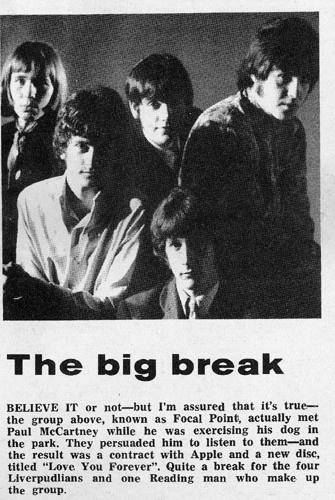
Apple as a record label was launched in late August 1968 with “Hey Jude”, marking the end of the Apple publishing era. By following month Focal Point’s rent was stopped: “We then got a flat in Dulwich in a place called Lordship Lane but it was hand to mouth. We weren’t playing. We were one of the acts to go. We thought “What’s the point staying here, starving. We might as well go home, eat properly and get back on the road again.” This is what we should have been doing in the first place.” Tim: “We were all signing on whilst other bands were on big retainers!” Before they travelled back, the band went to Paul McCartney’s house rang the intercom and asked “What do you suggest we do now?” Dave vividly remembers the response “Just go back to Liverpool, live on Ambrosia, and write ten songs and come back.” I thought “Thanks for that!” We got lazy down there. We weren’t producing new songs at the rate we should have been. I had been living on an egg a day – malnutrition had set in. I had an infection in the blood and I got ill.”
Focal Point went back to Liverpool to support artists such as Stevie Winwood, Peter Frampton, Alan Price, and Chris Farlowe although their most memorable was an embryonic Led Zeppelin in October 1968. Dave Slater continues: “The New Yardbirds was at Liverpool University. We were down to support them. Basically it was Led Zeppelin. They had two gigs they had to contractually fulfil: the Marquee on the Friday night in London and Liverpool on the Saturday. So suddenly we turned up and there’s Jimmy Page. They played the first album basically, “Communication Breakdown”… They were absolutely sensational. Jimmy Page was so patient and understanding. I talked to him for about 20 minutes back stage about his days with The Yardbirds, Jeff Beck and his guitar playing.”
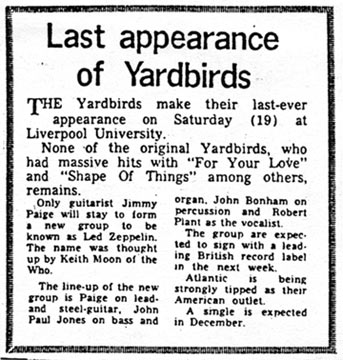
Focal Point as a live band called it a day in 1970 albeit they intermittently recorded through the Seventies. Dave: “We recorded and wrote “Love Is Everything I Need” in the Seventies. That has Eddie Cave, who used to be in The Fyx, on it. Listen to his voice, it’s an incredible lived in voice. It’s one of the favourite things we did.”
By the 2000s, interest in the group rose due to the b-side of “Love You Forever”, “Sycamore Sid”. Dave: “Unbeknownst to me and Paul at the time it was on four compilations I think. It was getting played at an annual psychedelic event in London. It then appeared on the “94 Baker Street” album with a few Iveys numbers. From that came our own “First Bite of the Apple” in 2005. It was well received critically and gave us some closure.”
The “First Bite of the Apple” album captured all of the band’s material from the Paul Tennant and Dave Rhodes 1967 demos to the group’s 1968 studio recordings, giving listeners a chance to hear their full range at last. Dave: “The single’s a-side had a ballad and the other side is psychedelic-ish “Sycamore Sid”. That was it. You didn’t hear the other stuff. It was a lot more than that. My favourite tracks off it are “Far Away From Forever” and also “Girl On A Corner”. It’s poppy is in some ways but with a Beatle flavour as that was the band we really, really liked. What I did like was that it was well received by younger audiences. It’s fantastic. “First Bite” sold more records than “Love You Forever” did, particularly in Japan.”
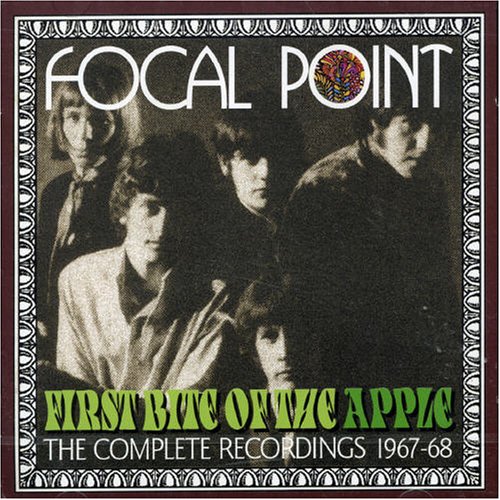
The band then reformed around the nucleus of Paul Tennant, Dave Slater and Tim Wells to play concerts. This led to the release of a new album and single in 2007. Dave Slater: “The song “Liverpool You’re In My Soul” has been received very well. Liverpool Football Club plays it regularly before the start of the matches at Anfield. It’s mainly Paul’s who wrote that in 2006. The “Liverpool You’re In My Soul” album is mainly recent material. Tim and I worked on it with Paul”
Paul Tennant sadly passed away in 2010. Dave: “He was like the brother I never had. I don’t have any other siblings and he and I were like brothers. It was a shock and he is sadly missed and always will be. Song writing is my passion at the moment. Now Paul’s passed I’m writing with his daughter Michelle. His legacy will live on. The name Focal Point will continue.”
For a band inextricably tied to the short period that was Apple’s Baker Street era Focal Point’s story shows the their music has endured and is bigger than ever.
Ultimately Focal Point may be remembered as a minor footnote in the history of Apple but their story provides a fresh perspective on The Beatles and the Sixties music scene. They show how luck could instantly propel you to the centre but how poor management and misfortune and could quickly leave you on the outside.
In memory of Paul Tennant.
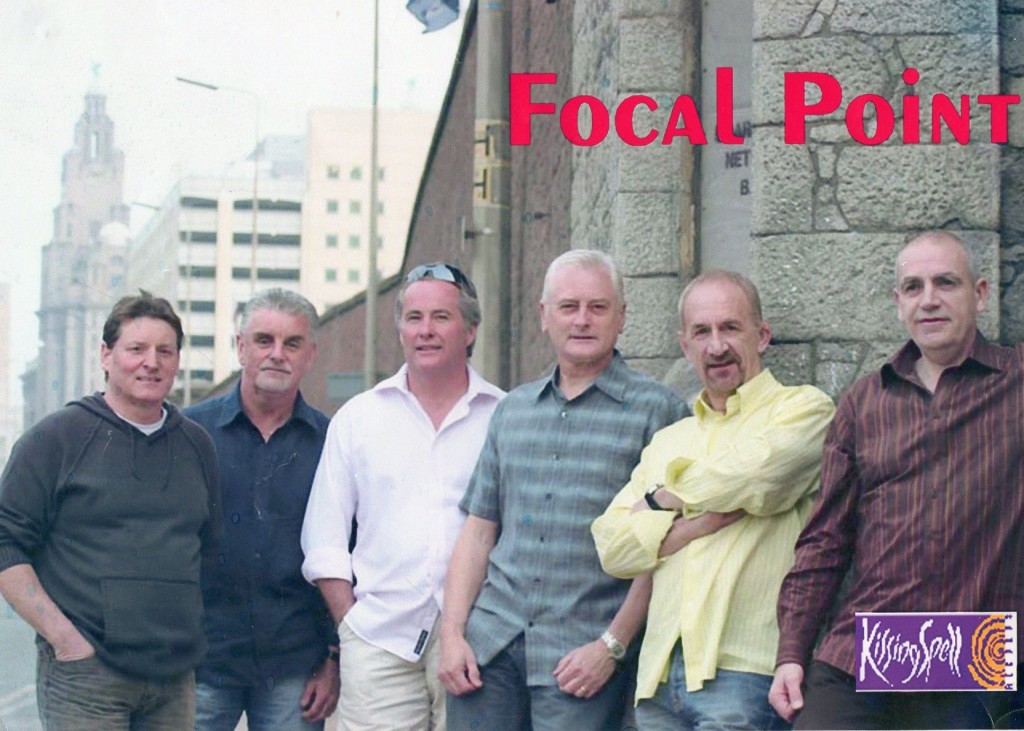
Further information
A special thanks to Dave Slater and Tim Wells for their help plus Jim McAlwane and Mick Capewell for use of the Marmalade Skies feature.
See also Strange Brew interview with Dave Slater.
Originally published in UGLY THINGS #35.
